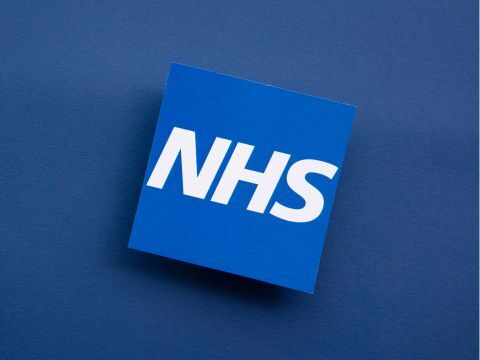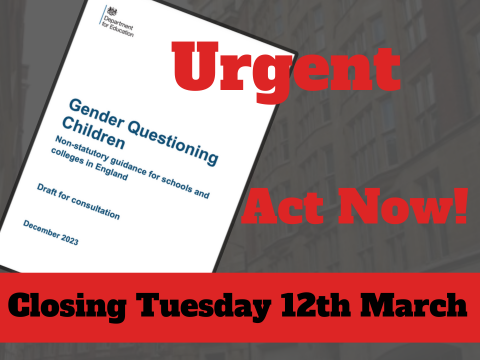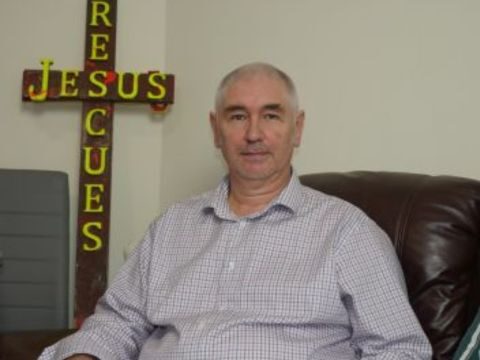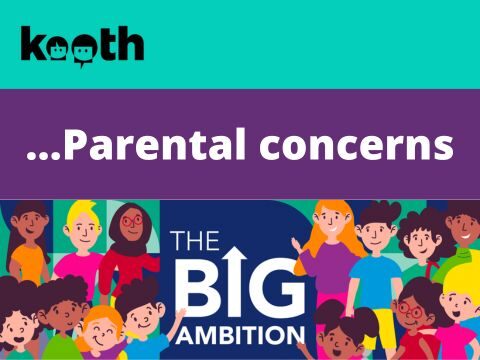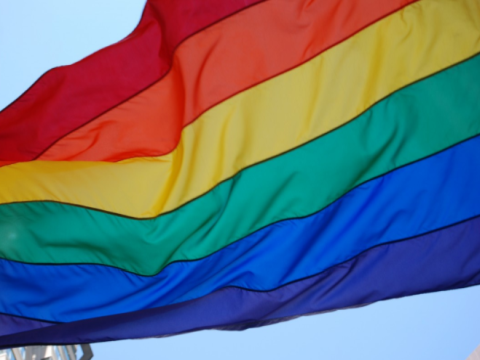

Two recent official documents at the end of last year – from the Department of Education (DfE) and from Ofsted – raise the most serious questions about what is actually happening in relation to RSE, or Relationships & Sex Education, due to start in schools at latest in the Autumn Term 2021.
On the one hand we have the DfE’s new online guidance, ‘Plan your relationships, sex and health curriculum’ (24th September 2020), and, on the other, OFSTED’s ‘Inspecting teaching of the protected characteristics in schools’ (17th September 2020; updated 7th December).
It does not help that they contradict one another. The one from Ofsted, reinforces a very marked and evident emphasis in Government guidance on LGBT issues in school. The multiple protests by parents, lawsuits against local education authorities and government, and the public controversy over the presence of such content in RSE have shown it to be a very controversial issue indeed.
But at the same time recent statements by Government ministers (some outlined below) as well as paragraphs in the new DfE guidance on RSE curriculum planning, show concerns about organisations that are “activist” or “political” in the way they present RSE issues to schools. This runs completely against the LGBT-activist tenor of the Ofsted Guidance issued on September 17th.
What this article examines is not only whether there is such a bias in RSE policy and provision, but also asks whether recent actions and statements of the Government have established a principle that in the end could – and should – correct this bias, and ensure that RSE does not become a force for ideological indoctrination and coercion.
The issue revolves around the status and role in law of the nine protected characteristics of the Equality Act of 2010. This is actually what Ofsted’s guidance on “Inspecting Teaching of the Protected Characteristics in Schools” is supposed to address. These characteristics are:
age;
disability;
gender reassignment;
marriage and civil partnership;
pregnancy and maternity;
race;
religion or belief;
sex;
sexual orientation.
Five are incidents of nature – age, disability, pregnancy/maternity, race, sex. The others involve issues of choice, though “sexual orientation” (in terms of being attracted to one’s own sex) may involve certain factors which are involuntary. There is no scientific test for the origins of homosexual feelings, but practice is undoubtedly a matter of choice, and practice can certainly exacerbate such feelings. Many of the problems arising from this legislation come from its conflation within the same legal category (“Protected characteristic”) of issues that are indubitably of nature – such as “age” and “race” – and ones that involve some issue of choice – “religion”, “marriage” etc. The provenance of the Act in the period up to its coming into law in 2010 is the redress of what was seen as discrimination against minorities of one kind or another. The problem arises with the “elective” characteristics, and very specifically between “religion” on the one hand and both “gender reassignment” and “sexual orientation” on the other. Religion in its mainstream forms in the UK – Christianity, Islam, Hinduism, Sikhism and Judaism – generally has an absolute respect for the human person, but would contend with elements of practice, specifically when it comes to the LGBT lifestyle.
These four characteristics with “elective” elements – “gender reassignment”, “marriage & civil partnership”, “religion or belief”, “sexual orientation (in its practice)” – in effect involve moral and/or practical decisions. You cannot stop yourself aging. You cannot choose your race. You can, however, choose to believe in the Deity (or deities), to get married, or to practise homosexual behaviours. This is where the controversy of recent years that has now moved into education arises. Moral decisions, decisions of choice, will have arguments for and against them precisely because they are issues of choice. They are matters of behaviour, not nature. Human beings have often agreed on universal norms of behaviour for their societies, especially in matters of sexuality, recognising that such behaviours can affect or have consequences on the common good. When a commonly held value system starts to fall apart, then any attempt to enforce codes of behaviour are often met with resistance. In the early days of Britain’s “permissive society” we agreed to allow sexual areas of behaviour and morality to be regarded as “personal” and not subject to sanctions – whether or not society was negatively impacted by such lifestyle choices. The Ofsted Guidance takes us well beyond that to the point where a new moral code is being imposed on everyone by a minority.
Ofsted’s guidance, “Inspecting Teaching of the Protected Characteristics in Schools”, a short document of 8 pages, states at the outset that it will focus on the “protected characteristics” of “sexual orientation” and “gender reassignment”. It then goes on to make it clear that if a school, including a primary school, does not teach about “LGBT Relationships” — even though there is NO mandatory requirement for primary schools to teach sex education, and LGBT relationships are by definition related to sexual matters, if not they are just friendships — then this can be reflected in the Ofsted judgement on “Leadership & Management”. No other protected characteristics are covered in this 8 page document. The guidance also states that “Schools will not be able to demonstrate this by pointing to a general policy of encouraging respect for all people.” No. This definition of “LGBT people” means that “being LGBT” is a question of innate identity rather than moral choice and behaviour. This seems specifically aimed at Jewish Orthodox Schools who are adamant that the requirements of their faith precludes them from even discussing LGBT issues. This does make the guidance possibly anti-Jewish, racist and anti-Semitic. The last paragraph states “Schools are at liberty to teach the tenets of any faith on the protected characteristics….they must also explain the legal rights LGBT people have under UK law, and that this and LGBT people must be respected.” The only way a religious school, which holds that same-sex behaviour is unacceptable, can do this is to be quite clear the person is respected but the practice is not for what cannot be approved or “respected” is what is regarded as a highly immoral and sinful lifestyle? In Orthodox Judaism to even speak of same-sex behaviour is not acceptable. Will Ofsted back religious rights or so-called “LGBT rights”? The two are not remotely compatible. It is clear what Ofsted will do. Mark down and punish those who want to exercise their religious rights and adhere to their faith. Is this being impartial, objective or equal?
It is clear that Ofsted intends that schools discuss and include LGBT issues in their teaching. Again, there is a problem here as this covers behaviour and not just aspects of nature. Persons and practice are conflated. All schools must therefore take on the philosophical and moral views propounded by Ofsted or they will fail inspection. But if issues of LGBT are those of moral choice and behaviour, is this not enforcing a code of morality that it will be impossible for many, in particular certain religions, to ever accept? Is Ofsted in a process of converting the nation to a moral viewpoint? Is that its job? That does seem the inevitable conclusion. Conflict is sure to come. The history of LGBT rights has been a matter of controversy for years and remains so — change has mostly been imposed on the people from above. There are fundamentally opposing views relating to LGBT ideology that Ofsted wishes to override in order to enforce the secular liberal worldview and penalise anyone who dissents – and note again, no word of religion, or race or disability etc, but a focus on LGBT issues alone – and this does raise questions of whether this is for the benefit of pupils or is part of an ideological campaign of cultural domination? The main organisation working in the field of “LGBT rights” in recent years has been Stonewall, who make matters very clear. Stonewall badges itself as follows (from its website)” “Stonewall campaigns for the equality of lesbian, gay, bi and trans people across Britain”. It is specifically described as a “lobbying not a membership organisation”. Their website specifically states “We will continue to campaign and lobby governments to change laws”.
Turning now to the DfE Guidance of September 24th this year, this is in two parts: “Teaching about (RSE)” (7 pages) and “Plan your (RSE)” (17 pages). The tone is very different. For instance in the shorter “teaching” part of the document they repeat the overriding “requirement under the Human Rights Act 1998 to respect the right of parents to ensure teaching and education in conformity with their own religious and philosophical convictions” and quote the Equality Act 2010. They do not single out any characteristics. Also they are emphatic on schools being politically impartial. They state “You should be aware that the meaning of political issues does not refer solely to the discussion of party politics. Schools are advised to consider the range of issues on which there could be political views, which may include global affairs, equalities issues, religion and economics”.
Equalities issues and religion obviously include issues of same-sex behaviour. And yet how in the light of this can the Ofsted approach to the teaching of LGBT issues be anything other than a breach of this requirement? Do Government departments speak to one another? Or is it rather that change is occurring and Ofsted have not yet caught up? Stonewall under this definition is clearly not “impartial” — it is political and is proposing a view about which there can be differences. That has to extend to LGBT issues generally until the tenets of the different world religions all change. Is it the job of the UK Government to compel them to change?
But the longer document takes the matter a decisive stage further. Page 6 Using External Agencies states “It is important when using external agencies to take particular care that the agency and any materials used are appropriate and in line with your school’s legal duties regarding political impartiality”. It continues on page 7 “You should exercise extreme caution when working with external agencies and proceed only if you have full confidence in the agency, its approach and the resources it uses”. Now it may well be that this was drawn up with trans agencies in particular in mind, as page 11 specifically covers this as follows: “Materials which suggest that non-conformity to gender stereotypes should be seen as synonymous with having a different gender identity should not be used and you should not work with external agencies or organisations that produce such material”.
It is interesting that transgender agency Mermaids has, we understand, been removed from the approved list precisely because they may adopt this approach. Also, it is possible to discern concerns about Jihadist views and organisations in the DfE guidance. But should not the cautions expressed within this document, particularly the paragraphs on “ensuring content is appropriate”, extend to LGBT issues generally and not just trans issues? And there is every logic and reason for treating Stonewall similarly to Mermaids? Stonewall has tried to make itself ubiquitous in education and schools, as evidenced by the number badging themselves as Stonewall Champions, even though it is a “political” “lobbying” “campaigning” organisation and, as such, according to the spirit of DfE’s guidance, ought to have no place on the list of those programmes approved for use in schools? The whole 17 page document “Plan your RSE curriculum”, with its emphasis on pupil welfare, is in such contrast to the Ofsted emphasis on LGBT ideology or “LGBT people”.
Nevertheless both documents still direct schools to the 2019 Guidance which treats “LGBT relationships” as something to be taught and respected. That is for many of the mainstream faiths noted above an impossibility. This point was put directly to the Schools Minister Nick Gibb (who himself has been in a same-sex marriage since 2015) in a parliamentary committee room in February 2020. And with some passion, leaning over the lectern area and wagging his finger at the questioner, he stated “You will teach LGBT! You will teach LGBT!” Quite what that means has never been made clear, nor the meaning of the phrase in the guidance of “LGBT content”. The simple fact is that Christianity and the other major faiths can only refer to same-sex practice as abhorrent to their God and not permitted – NOT the person, that it must be emphasised, as all these faiths generally do not divide people into “LGBT” people and others, but consider ALL people without distinction as the beloved creatures of their creator God (or as each religion defines). The irony is that the historical origin of equal treatment derives from the view of the human person propounded by Christianity. This makes the current attempt to suborn the religious conscience, as Ofsted clearly intends to do, even more repellent and not in line with the history and development of human rights.
This is where the issue of institutional bias arises. But before coming to any conclusions or proposals, I would like to present five examples that may also illustrate this institutional bias, but also show how the counter arguments are developing to correct it. If we are to avoid considerable conflict in schools, withdrawal of pupils from RSE, more home-schooling, the alienation of people of faith and the safeguarding dangers of RSE delivery in schools, including the “grooming” of minors, then we need to address this as a matter of urgency.
- Lockdown Rules.
For the national lockdown in England that began on November 5th 2020, it was reported that the groups that can continue to meet together in person are those for recovering drug and alcohol addicts and support groups for gay and transgender people. However, young people preparing for the Christian sacrament of confirmation or meeting for bible readings were not allowed to meet. Why this distinction in the protected characteristics, whereby sexual orientation is favoured and religion and belief are denied? (Daily Mail November 3rd 2020) - BBC Impartiality Rules.
Impartiality rules brought in by the new Director-General of the BBC, Tim Davie, initially included, for instance, directives for staff not posting support for such political causes as BLM Black Lives Matter and also not attending Pride parades. The latter prohibition was protested against by LGBT employees and activists and the BBC backed down, while stressing staff “are not seen to be taking a stand on politicised or contested issues”. The report goes on (Times October 31st) “The clarification failed to satisfy many LGBT employees. The rules appear to suggest that staff could still face disciplinary action if they take part in campaigning Pride events such as a march in support of legislation to make it easier to transition”. Then the inherent bias caused a counter-reaction “Some BAME staff…questioned why Pride parades were deemed acceptable when BBC journalists have been told not to post their support for the BLM movement”. A hierarchy of rights? Orientation above race? A house divided against itself cannot stand. - BBC Complaints Department
A recent correspondence between the BBC and Caroline Ffiske was published on the Conservative Woman website on November 17th 2020. Ffiske objected to what she saw as the “pushing of gender ideology at our kids”. She cited BBC Bitesize articles designed for schools. In a trenchant response, the BBC Complaints team quoted Stonewall as the source of the material that Caroline found offensive and biased. They quoted the DfE Guidance above making it clear schools must not promote “partisan political views”, making the point that the BBC does not “promote or endorse the views of campaigning organisations”. But its material was from Stonewall, and Stonewall identifies itself as continuing “to campaign and lobby governments”. But the BBC then backtracked. “We recognise that the sole mention of Stonewall may have given the impression of a partial perspective and have therefore added links to other organisations”. So the BBC recognises Stonewall is partial. Or does it? When it comes to its own staff they are above impartiality if they attend a Pride parade. Perhaps its Complaints Department should talk to its Personnel Department? - National Gallery vs. Culture Secretary
In June the V&A, the Science Museum, and the Tate released statements supporting the aims of BLM. Interesting that the BBC does not share that view as their journalists have been told NOT to post support for BLM. The Culture Secretary Oliver Dowden, however, did not take kindly to this. He wrote to the National Gallery warning them not to remove “statues or similar objects” if they were, for example, of figures deemed to have profited from slavery. He said that “as publicly funded bodies you should not be taking actions motivated by activism or politics” (Times November 4th). But does this mean that if ministers at the DfE were to take Mr Dowden’s advice, they might have to revise their guidance? LGBT issues are not and never can be a settled issue of fact or science as they involve choice and moral issues. Only by taking all “activists” or campaigners out of schools along the lines of the September 24th Guidance can this be guaranteed. But this must include LGBT activists as well. Or are they different? It appears the Culture Secretary shares the ministerial view in the Guidance. Perhaps he might like to talk to Ofsted? Or do different rules operate there? - Employment Tribunal Cases by Category of Discrimination
This came from a FOI request to the Ministry of Justice reported in the Times October 14th and in Scottish Legal News October 13th. Both articles led with “Claims of LGBT bias double in 5 years.” There were over 120,000 cases examined. Sexual Orientation cases were up by 165%; Disability by 133%; Religion or Belief up by 130%. These were the top three. The headlines would give the impression of s staggering rise therein. But, if you check more closely, the actual number of cases gives a different picture. Sexual orientation cases were 1661 or 1.34% of the total; disability cases were 27754 or 22.5% and Religion or Belief were 2931 or 2.37%. Of the categories not picked out, age was 31935 or 25.89%, sex discrimination: 35363 or 28.6%, race: 17419 or 14.1%. Reading the headlines alone would give the impression of terrible discrimination against those identifying as LGBT. But this category represents the smallest percentage of cases. This ties in with the percentage of LGBT in the population according to ONS statistics in 2017 – just under 2%.
This latter fact is extremely important in schools as cases of LGBT pastoral needs, or indeed any issues in a child’s development that could be classed as LGBT related, are going to feature very rarely. Any case of discrimination and bullying is abhorrent and, in the case of a young person, questioning their identity is extremely delicate and fraught with sensitivities, and must be dealt with pastorally in that manner. But it is not the case that schools are rife with this sort of bullying, and in terms of Ofsted’s own approach to “Inspecting Teaching of the Protected Characteristics in Schools”, to focus on LGBT issues is unbalanced and partial, as in fact issues relating to sex and disability are far more likely to arise. Sexual bullying between boys and girls, and between girls often carried on through social media, is a major problem in schools, as are the growing issues of disabilities associated with Autistic Spectrum Disorders, ADHD or Neuro-Diversity. But where is the Ofsted emphasis and spotlight on all that? Statistically, there will be far more pupils suffering from these kind of disability related problems than struggling with LGBT issues. And yet the focus, the concentration, the emphasis, the insistence, the penalties enacted, are all on the latter. It is grossly unfair, just as BAME staff found with the BBC – some characteristics are more equal than others, and anti-discrimination itself discriminates as to who merits protection.
What to propose? Quite simply three things:
Firstly: to recognise in all areas of officialdom, in the media, the Government, and overwhelmingly in Ofsted, that political bias runs through all treatment of the issue of Equality and the Protected Characteristics – with sexual orientation and gender reassignment trumping all others. Regardless of the question of whether there should be any such thing as “protected characteristics” (shouldn’t all citizens be equal under the law?), or whether sexual orientation and gender reassignment should be amongst them, the fact is such instances of “discrimination” are rare, small in number and such claims often coincide with legitimate rights of religion and belief. If “Equality” is to prevail, all must be treated alike.
Secondly: to recognise that “LGBT issues” – as well as those of religion and belief also – are matters of argument, choice and partiality, and so should not be imposed on school children, against the will of of their parents, as if they were unquestionable pillars of human existence. You could teach if you wished the history of the campaign for “Gay Rights” and a very interesting one it is in recent years, but you cannot “teach” Gay Rights. Yet the DfE is actually going about doing that in many of its proposals for RSE. Ofsted blatantly espouses the imposition of LGBT ideology: “If a secondary school does not teach about LGBT relationships, it will not be meeting the requirements of the DfE’s statutory Guidance. Inspectors will consider this when making the leadership and management judgment.” But any religious school also has the freedom to teach that homosexual behaviour is forbidden and immoral? How does that leave any pupil personally concerned with these issues? Surely it is better to care for the very small minority who are caught up in this with pastoral care and sensitivity and respect, than to turn this into a tool for promotion that has every chance of making the individual a pawn in a political and ideological argument? And it means automatically that any school adhering to their moral or religious view on LGBT lifestyles will be marked down. Is that not discriminatory in itself?
Thirdly: to incorporate the official views now coming through – in the DfE guidance and also in the Culture Secretary’s statement, and to some extent in the BBC under its new Director-General – that what is a matter of campaigning, of activism, of politics may be very vital and proper in its domain, but NOT a subject to impress upon schoolchildren as it is not impartial. It does appear as if the Government is resiling from its earlier approach summed up by the Schools Minister’s public exhortation that “You will teach LGBT! You will teach LGBT!”. The matter is becoming commendably more nuanced, and more carefully treated. But whether schools will have time to incorporate this change of approach in their curriculum ready for September 2021, after years of absorbing the institutional bias in favour of certain “protected characteristics” above others, remains to be seen.
There is finally a very worrying and disturbing safeguarding issue involved in all of this. The ferocity of the campaigns relating to this issue, provoking such reactions as were seen at Birmingham schools in 2019 and resulting in a number of law cases currently under consideration, seems to have allowed the children to be lost sight of. Issues of sexual or gender confusion, for those suffering from them, are a difficult and delicate matter. Great care needs to be taken in supporting and counselling young people in these matters. Mercifully they are few in number, whatever the noise made by “activists” and social media. But the incorporation of these matters wholesale in the curriculum does bring schools so much closer to becoming, if you will pardon the phrase, “grooming factories”. The ferocious insistence on including the exposition and discussion of such intimate matters throughout education could well, once children imbibe it all, lead to experimentation and early practice. More critically, it will accustom children more and more to see these matters, intimate matters of sexual development, as normal and accepted behaviours taking place in a public sphere.
The process of grooming often starts with detaching a child from his or her current affective relations, the predator worming his or her way into the trust of both child and family, or taking the child away from his or her family. But to increasingly associate learning about these very personal and intimate matters with the external, public context of the classroom does not strengthen either modesty, privacy, self-respect or self-control. After all, you have been learning since the age of 5 about your body as a sexual vehicle for various sorts of activity, so why not continue that when your body develops the capacity to put into practice the lessons you have learned?
Indeed, peer on peer sex abuse is now a fixed item in the safeguarding agenda of any school. This is a recent phenomenon. Where has that come from? I would argue it is the very activity of classroom sex education that predisposes children to carry out these matters in their real life. We are doing our children the gravest disservice in making their minds and bodies the battleground for our adult concerns about identity, behaviour and rights.
Not only is the inequality between protected characteristics, promoted by institutional bias in their application, a matter of grave concern; there is also the question of what impact all of this will be on children if carried through. The very insistent emphasis of Government and campaigners on the need to teach our children these issues – to satisfy I would argue the aims of such campaigners and lobbyists – brings into their lives matters that are properly the domain of adult life. The way out is actually to adopt the current government approach of treating all external agencies with concern and making sure they have the confidence of parents; of ensuring LGBT political pressure groups, such as Stonewall, are viewed rightly in this light and also as a safeguarding threat, and to ban them from education wholesale. And then, working with parents, the right must be restored to schools to draw up teaching that will make safeguarding and each child’s welfare the sole and central concern in education; and to modify all we do in that light.
Edmund Matyjaszek
Principal
Priory School of Our Lady of Walsingham
1.12.20/20.7.21

